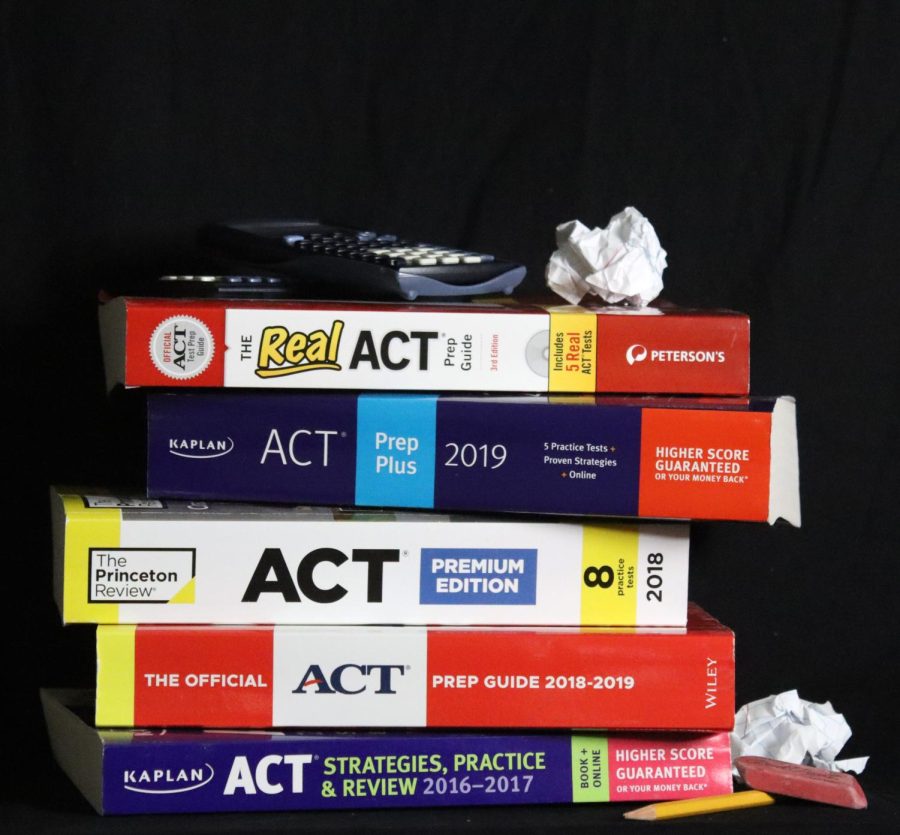Standard of Excellence
Standardized tests offer both benefits and disadvantages
“It may be even a way to set yourself apart from a student who might have the same GPA as you, but they’ve taken way easier classes.” — Todd Mincks, counselor
April 18, 2023
While testing is a stressful part of students’ school years, the results of standardized tests are used for reasons that ultimately impact a student’s future. Nixa High School college and career counselor Joy Horgan said tests like the Advanced Placement (AP), American College Testing (ACT) and Scholastic Assessment Test (SAT) all serve important purposes.
“Those are college readiness tests, so … colleges use that to see how successful you’ll be in college,” Horgan said. “[Colleges] do base their scholarship dollars on ACT scores sometimes just because they think the higher the score, the more successful you’ll be in college. So they’re going to give the money to the people they think are going to be the most successful.”
Virtual counselor Todd Mincks said standardized testing is a way to put students on an even playing field.
“… One of the most common standardized tests is the ACT for college entrance,” Mincks said. “… Colleges look for ACT [scores] because a kid could graduate from Nixa High School with a 4.0 [grade point average] and another kid who might be looking to get into the same college might graduate from a high school in Arkansas with a 4.0, and that college doesn’t know what it means to have a 4.0 at Nixa versus a 4.0 at that Arkansas high school.”
Because grade point averages can be weighted differently from one school district to another, there is room for inconsistency. For example, while Nixa does not weigh GPAs based off of honors courses, all Springfield schools account for those courses, which means Springfield students could graduate with a 5.0 GPA. Students taking a standardized test such as the ACT allows for all students to be represented regardless of how their school district weighs grade point averages. Briana Ashby, AP language and composition teacher, said the purpose for many standardized tests is multilayered.
“From the teacher level, it is a more objective way to look at my own practice [and] my own teaching techniques,” Ashby said.
End-of-course assessments (EOC) are standardized tests taken by high school students in Missouri. EOC tests are not used by colleges, but the scores are useful to districts.
“It provides data in terms of an objective way to see what students are actually grasping outside of just what one individual teacher or one individual school deems as important,” Ashby
said. “It does give a baseline measurement that can be helpful.”
Although Missouri’s form of this assessment is EOC testing, junior counselor Scott Robinson said most states will have some form of this standardized test for high school students.
“The purpose of standardized testing is to be able to evaluate each student to other students of the same grade either in this state or in the nation,” Robinson said. “The EOC is the same test given to all students in the state of Missouri over [a specific] subject, whereas ACT and AP tests are the same tests that are given to all students … in the nation.”
Tests like the EOC asses a student’s knowledge of the curriculum of a certain subject based on their state’s standards. Although different states may have different standards for certain subjects, standardized tests allow for reflection over the curriculum in regards to student’s understanding.
However, with college readiness tests like the ACT and SAT, students can benefit from taking these assessments because of what they can offer in regards to pursuit in higher education.
“It may be even a way to set yourself apart from a student who might have the same GPA as you, but they’ve taken way easier classes,” Mincks said. “… It’s going to allow colleges to recognize you for your strengths and give you their best deals, their best scholarships or entrance to the most prestigious schools.”
Although students may benefit from different forms of standardized tests, Horgan suggests that for students pursuing a higher education beyond high school, taking the ACT will most likely benefit the most.
“For ACT, an advantage would be for scholarships,” Horgan said.
Earning a merit based scholarship from standardized tests like ACT can significantly affect a student’s future.
“In terms of how we currently use ACT, it potentially could get you some money for college and that has super lasting impacts,” Ashby said. “If you’re able to get your college paid for because of ACT scores, there’s potentially hundreds of thousands of dollars that you do not now have to pay back in debt, which does affect your quality of life.”
In addition to monetary benefits, students may have a better chance of being accepted into their preferred institutions depending on their standardized test scores.
“Depending on the standardized test you take, [your score] could [decide] whether or not you get accepted into colleges,” Robinson said. “Colleges will use things like the ACT, AP, or the SAT to help determine what students’ educational backgrounds are and how they would fit that college. So, the better you do on a standardized test, the better your chances are of getting into the college of your choice.”
While there are many benefits to standardized testing, they can sometimes be limiting for students. Ashby said she thinks some standardized tests can limit the creativity of the teacher and students at times.
“I’ll speak to my experience as a teacher at a couple of different districts—come spring, come second semester, a lot of more purposeful, fulfilling, creative, innovative [and] soulful things get thrown on the back burner in order to prepare for these standardized tests because every school district does want to perform well. We want to show that comparatively, we are at the top.”
The comparative nature of many standardized tests can constrain teachers and students at times.
“The state of Missouri makes it very clear that they would like to have all students proficient or advanced on these standardized tests,” Robinson said. “So that inherently puts a lot of pressure on school districts and the teachers of that particular course to get those grades.”
Additionally, standardized testing can put pressure on students to perform well.
“The kids that really just stress out with anxiety about a single test; it’s not going to be a fair representation of their abilities,” Mincks said. “So those kids might be deserving of a scholarship
but because they have so much anxiety about that test, they just can’t break through and do well on it.”
Although standardized tests can be anxiety inducing for students, many schools have resources to prepare students for these tests. Many schools offer a sort of preparation class for standardized tests. Ashby has experience as an ACT preparation (ACT prep) teacher and said that most students were grateful to be able to review and prepare for the ACT.
“The thing about the ACT and a lot of other standardized tests is you either know it or you don’t, which is the nature of these,” Ashby said. “In terms of the English … [portion of the ACT], we don’t do a lot of grammar work within the curriculum, so ACT prep allows a space where that’s really all you’re doing for at least a quarter…”
With these resources available, students have opportunities for success. However, it is important to realize that test scores do not define students.
“It can be nice to perform well and that can bring value,” Ashby said. “But I think we really need to keep ourselves in check in terms of when we get those results—what they really mean on an individual level, but also on a wider scale as well.”







